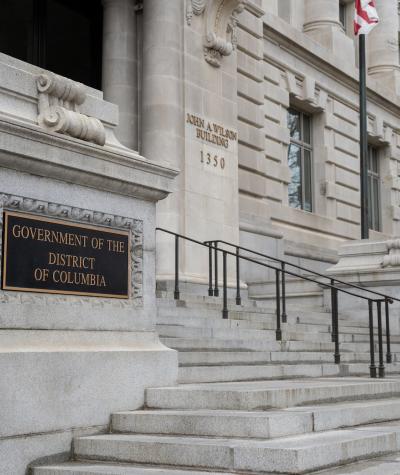D.C. Council member Jack Evans is obviously no stranger to ethics-related controversy. Earlier this year, he resigned from the powerful Metro Board amid revelations that he raised an investigation into his consulting client Colonial Parking’s primary rival, Laz Parking.
He was making $50,000 per year off his consulting for the D.C. parking giant but failed to disclose that conflict to the Metro Board. And that was only the tip of Evans’ ethics scandal iceberg.
Now, it has come to light that Evans did not just hide a massive conflict of interest while on the Metro Board. He also went to great lengths to conceal the ethics committee’s determination that he violated ethics rules.
These efforts included Evans and another former Metro Board member, Corbett Price, threatening the jobs of the Metro’s general counsel and board secretary because of their work on the inquiry—a stunning abuse of entrusted authority.
Evans and Price also attempted, successfully at first, to keep the full Metro Board—and, ultimately, the public—from receiving the findings of the ethics committee. Price, a former member of the four-person ethics committee, voted to keep the findings confidential, securing a deadlock.
The findings were only made public after pressure from state officials, including Maryland Gov. Larry Hogan (R) and Virginia Gov. Ralph Northam (D). Price resigned from the Metro Board after his role in Jack Evan’s ethics investigation was made public. Price is a political donor to Mayor Muriel Bowser, who appointed Price to the Metro Board.
There are a lot of lessons to be learned from this complicated tapestry of ethics failures. The most important is that all levels of government—whether it’s the federal executive branch or a regional metro board—need comprehensive ethics laws and an effective entity that can root out and enforce the laws.
D.C.’s Metro Board took an important step by launching an ethics investigation into Evans’ wrongdoing using an impartial outside law firm. But it took too long for that investigation to materialize. Evans’ influence peddling only came to light after it was discovered Evans marketed his public service to law firms that lobby D.C. officials.
As the Jack Evans controversies continue to rage on, the Metro Board should consider implementing some best-practices for their ethics committee, like making investigation findings public as a matter of course, and preventing deadlock by having an odd number of committee members.
D.C. Council Chairman Phil Mendelson (D) should also carefully vet his selection to replace Evans on the Metro Board and make sure the new member is committed to ethical leadership.

